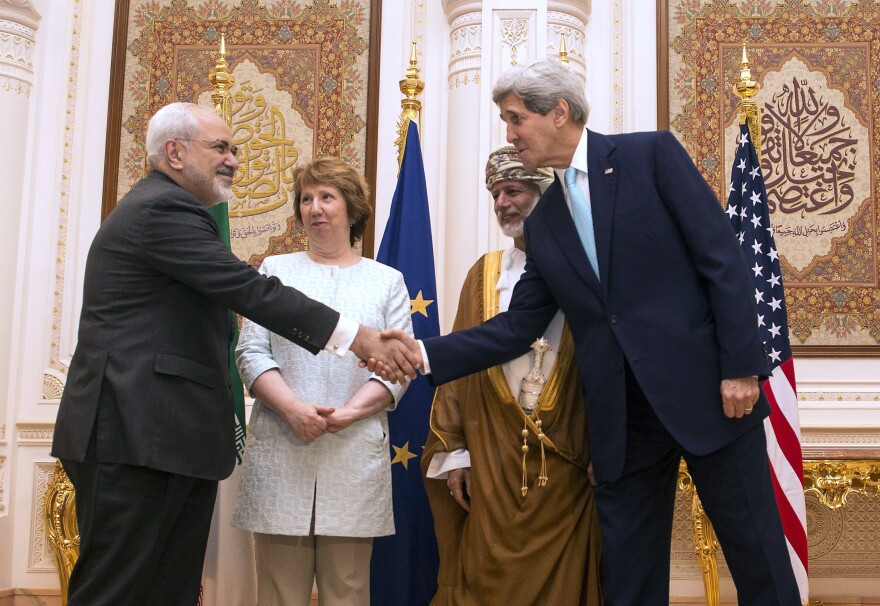American and Iranian negotiators are gathering in Vienna this week for what's expected to be a final push toward a deal over Iran's nuclear program.
The stakes are huge for both countries, and the deal could reshape the Middle East and pave the way for a new relationship between two bitter rivals.
But if you look at the headlines this morning, it'll give you an idea of just how tenuous a deal may be:
-- "Doubts about a nuclear deal with Iran as talks near deadline" (Washington Post)
-- "Iran Nuclear Pact Faces an Array of Opposing Forces" (The New York Times)
The crux of the negotiations are pretty simple: The West — represented by the so-called P5+1 — wants to extend Iran's "breakout time," or the time it would take the country to enrich enough Uranium to make a nuclear weapon. Iran wants the United States and its allies to lift its economic sanctions. The country also wants to continue enriching uranium for a non-military program.
Any deal, however, is about much more than that. The New York Times explains:
"... Even if a deal is struck it will be the beginning of an argument, rather than the end of one. For many of the president's adversaries, the details of whatever deal he emerges with — how much warning the West would have if Iran raced for a bomb, for example — are almost beside the point.
" 'In every nation involved, this negotiation is a proxy for something bigger,' argues Robert Litwak, a Wilson Center scholar and author of 'Iran's Nuclear Chess: Calculating America's Moves.'
" 'Here it is a test of Obama's strength and strategy,' he said. 'In Tehran it is a proxy for a fundamental choice: whether Iran is going to continue to view itself as a revolutionary state, or whether it's going to be a normal country,' which so many of its young people yearn for it to become."
If you remember, this round of negotiations kicked off about a year ago, after Iran agreed to pause parts of its nuclear activities while the two sides sought a long-lasting accord. At the time, even that deal was hailed as historic, because the United States and Iran have had no formal ties since 1979.
So whatever happens this week will be a big deal.
The Washington Post reports that President Obama tamped down expectations for a greater accord, saying, "We may not be able to get there."
The Post adds:
" 'It's pretty clear that, barring a miracle, there's not going to be a comprehensive deal struck on the 24th of November,' said Mark Fitzpatrick, a former U.S. diplomat who is director of the nonproliferation and disarmament program at the International Institute for Strategic Studies. 'The two sides just remain too far apart, and the amount of horse-trading that would be required for a deal is too complex to get it all done in time, even if both sides really wanted to.'
"The best-case scenario is that both camps agree to keep talking.
" 'What is still possible is a breakthrough that could justify adding more time to the clock,' said Ali Vaez, a scientist who focuses on Iran for the International Crisis Group."
Copyright 2021 NPR. To see more, visit https://www.npr.org.




